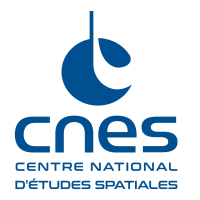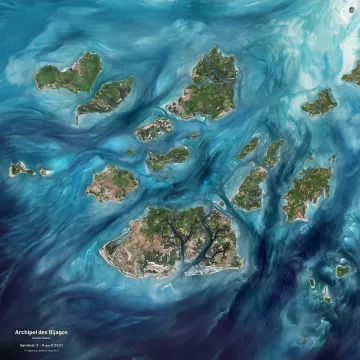France is one of the leading space powers and a major contributor to European space policy. As the French space agency, CNES has an ambitious strategy with four priorities.
Sovereignty: Maintaining and furthering France and Europe’s strategic independence
With space occupying an ever greater role in economic development, security and defence, it is vital to further France’s ability to develop and operate its own civil and military space systems. Such strategic independence supposes that we sustain an effective and competitive industrial ecosystem, sovereign infrastructures like the Guiana Space Centre and the Ariane 6 launcher to guarantee access to space, and the resources required to protect them and maintain our space capabilities.
With the Ariane programme and its spaceport at the Guiana Space Centre, Europe can rely on its own reliable access to space. As Ariane 6 prepares to take over the mantle, France and Europe’s ambition is to maintain an independent and competitive space launch capability, working alongside manufacturers and all CNES’s partners.
CNES is modernizing the Guiana Space Centre to ramp up launch rates and attract future private launch operators. We are also developing the technology building blocks required to address the challenge of next-generation reusable launchers.
CNES is making a key contribution to honing the skills of military personnel at Space Command in Toulouse. In four years, three fleets of eight satellites in total have been deployed to strengthen France’s military space capability. Within the European Union, France is advocating a European space security and defence strategy.
Independent access to satellite data is a major sovereignty issue for France and Europe. Through its comprehensive and systematic vision of space projects, CNES is making a vital contribution in this domain, notably to the European Union’s flagship Galileo and Copernicus constellations, and soon to IRIS2.
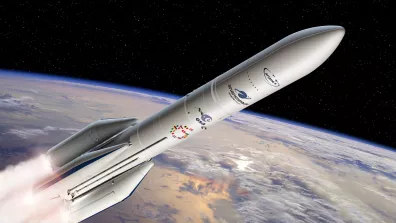
Sustaining and extending French scientific excellence
Space is driving advances in many fields of science, be it universe or Earth science, materials science or life science, as well as in applied research serving the economy and society.
CNES’s cross-cutting technical expertise is contributing to ambitious missions with ESA, NASA and space agencies around the world.
We are leading the space science community, helping laboratories to develop their instruments, conceiving technology solutions, organizing partnerships between French players and structuring their contributions to European and international research and exploration programmes.
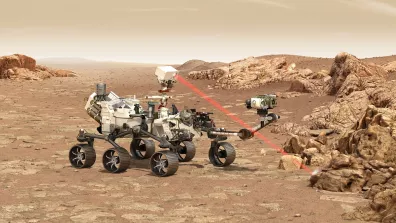
Working towards a sustainable world
Satellites today reach into every corner of our daily lives. They are key to the energy transition, environmental monitoring, mobility, land management and natural disaster response to name a few.
CNES has the technical and scientific expertise essential to develop new Earth-observation missions, alone or with international partners, and to gain new insights into the underlying mechanisms driving climate change.
We are also committing the space sector to reducing its environmental footprint, from design of future launchers through to new propellants and management of space operations.
Through CNES, France is a key partner on the flagship space missions vital to analyse and keep track of environmental crises. In developing Earth-observation satellites and stratospheric balloons, CNES is closely involved in designing instruments that are crucial for collecting data to inform scientific research. For example, 26 of the 50 essential climate variables (ECVs) used by the Intergovernmental Panel on Climate Change (IPCC) are observed from space.
Our nation is also supporting collective efforts to tackle the consequences of climate change, notably through the Space for Climate Observatory (SCO) and its 36 member agencies and international bodies.
CNES is also fostering new applications of space technologies to serve the ecological transition, like mobility solutions and sustainable cities.
CNES is seeking technologies for a more sustainable space environment. We are also tasked with implementing the French Space Operations Act (FSOA), which imposes strict obligations for all French space operators and aims to limit the number of orbital debris and guarantee the safety of our space operations—an avant-garde vision that France is advocating to its international partners.
CNES’s corporate social responsibility (CSR) policy covers the three social, economic and environmental pillars of sustainable development, aligned with France’s CSR roadmap and the UN Sustainable Development Goals (SDGs).
Through our low-carbon strategy, energy saving, preservation of biodiversity, optimized business travel and our real-estate plan, we are working across the value chain to reduce the agency’s environmental footprint.

Sustaining a competitive space ecosystem
Driving innovation and fuelling economic growth, space is undergoing a transformation with the emergence of Newspace players and the ongoing digital revolution. In this new landscape, the space strand of the France 2030 investment plan, for which CNES is one of the two operators in charge of a €1.5-billion budget, aims to support the French space sector’s transformation.
CNES is also helping manufacturers with its technical expertise to structure sectors of excellence, easing uptake of space technologies and access to space for new entrants, and fostering development of new services based on satellite data.
Through numerous initiatives like Connect by CNES, we are spurring this new innovation-driven space economy and fostering development of a comprehensive range of downstream services and applications (environment, maritime industry, agriculture, healthcare, etc.).
Key figures:
- 70,000 direct jobs supported by the space ecosystem in France
- €1.5bn / budget the French government is devoting to innovation in the space sector through the France 2030 investment plan
- 79 startups supported by CNES in 2024
“Our role is fundamental, working with public investment bank Bpifrance to identify the issues and execute the space strand of France 2030. We have to imagine win-win ways of working together: firms are able to upskill very quickly if they want to and we obtain new services or tools in return.” - Philippe Baptiste, former CNES Chairman & CEO
Space is a key cog in the digital revolution, as growing numbers of satellites acquire and convey ever larger volumes of data having a multiplier effect in developing new economic ecosystems.
The downstream space sector is a particularly rich seam of growth, as new applications and services using satellite data emerge in promising domains for the future, notably for sustainable development (green growth, healthcare, mobility, land planning, water resource management, natural hazard management, agriculture, forestry, fisheries, etc.).
Space burst into our daily lives through telecommunications. Today, not a single TV programme or SMS isn’t relayed at some point through a geostationary satellite. With this sector’s stakeholders, CNES is developing disruptive innovations to enable technological and commercial breakthroughs, like the Kineis nanosatellite constellation set to connect millions of objects in domains such as agriculture, logistics, transport and energy, and to enhance the Argos system.
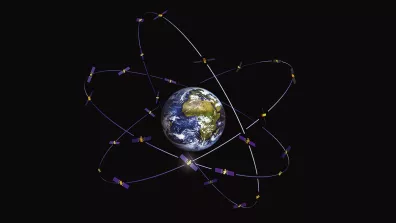
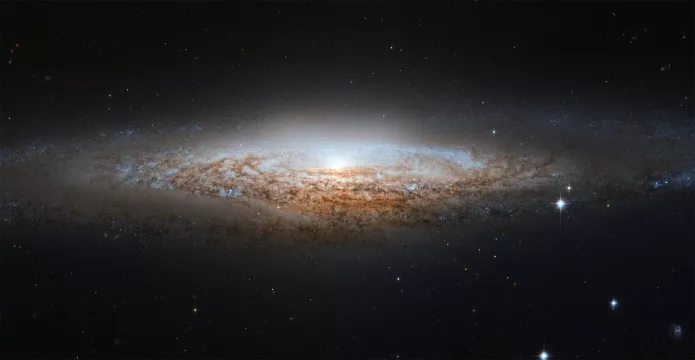
CNES in action
CNES is more than 160 space missions and dozens of projects for business, local government, education and culture.
